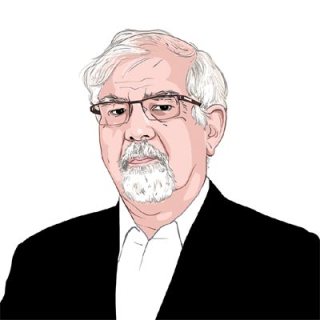Tax and expenditure reform — a dream beginning
The hope is that the 2019-20 budget will be the beginning of an overhaul of India’s antiquated and corrupt tax and redistribution policies

For an interim budget, this was a break-through. I have been closely involved with budgets for the last 20-plus years — as an outside observer and an active participant in the debates on economic policy. When P Chidambaram cut the top tax rate to 30 per cent in 1997, I hailed it as a dream budget. Today’s interim budget is even more of a dream budget. Let me explain.
My concerns throughout have been the following: Do not be a fundamentalist on the fiscal deficit, as most of my fellow economists, and all market participants, have been. For me, the two most important economic considerations for a policy-maker are growth and inflation. From a tax and subsidy perspective, my belief has always been to separate price setting from equity. Translated, that means that the market (sorry, my left-wing friends) should set prices; and by market I mean both domestic and international. The government should achieve its equity objectives through direct benefit transfers. The intent and direction of the interim budget are attempting, and beginning, to meet these objectives.
For the last 40 years, India has followed a misguided policy for alleviating poverty or for increasing food production. In India, we have a saying about the two different paths to touching your nose — either a straightforward way with which you actually achieve the objective; or in a roundabout way (arm around your neck) where it is impossible to even come close to achieving the target. We have followed the old-fashioned corrupt way — food procurement, food distribution via the Food Corporation of India to ration shops from which 75 per cent of the population can access rice and wheat at Re 1 and Rs 2 per kg. Along the way, about 50 per cent of the food that is meant to be distributed to the poor and lower middle class disappears into thin air — that is, into corrupt sinks. The amount of this corruption — Rs 1 lakh crore.
By introducing Direct Benefit Transfer (DBT) to the poor farmer, the government appears to have taken the first steps towards dismantling the 40-year-old corrupt policy of food procurement and distribution. And a highly inequitable one as well. By raising the minimum support prices (MSP) like this and as previous governments have done, only the rich, upper-class farmers are really helped. The Narendra Modigovernment bought into the false policy of raising the MSP to farmers as a way of solving the farmer income problem. They (the policy-makers) have been taught the first important lesson of Econ 001 — supply and demand determine the price, not the diktat of a bureaucrat or a left-intellectual, however well-intentioned she might be.
Econ 001 will also teach you that the market setting of the price does not solve the desirable objective of a “fair” distribution of income. That is where a negative income tax first mooted by Milton Friedman in the late 1950s comes in. DBT is one version of negative income tax. So for all those politicians who think they have just discovered the principles behind basic income, please read your Econ 001 history books. Indeed, the general concept of basic income was first articulated (and practised and failed) in England in the late 18th century. Incidentally, the failure was due to DBT being tied to the price of bread! Approximately the same reason why the MSP system is (thankfully) failing.
The DBT, as presently announced, is a transfer of Rs 6,000 a year to poor farmers (those cultivating less than 5 acres). The target is 120 million small farmers, and total expenditure, therefore, is Rs 72,000 crore a year. For an attempt to arrive at a basic income transfer policy for all poor residents of India, and poor defined as those consuming less than PPP $3.1 per person per day (approximately Rs 1,800 at present prices), see my joint research article with Karan Bhasin (ssbhalla.org/paper/towards-a-targeted-basic-income-policy-for-india). In the paper, we recommend a transfer of Rs 520 per month for the rural poor and Rs 630 per month to the urban poor.










.png)




























No hay comentarios:
Publicar un comentario